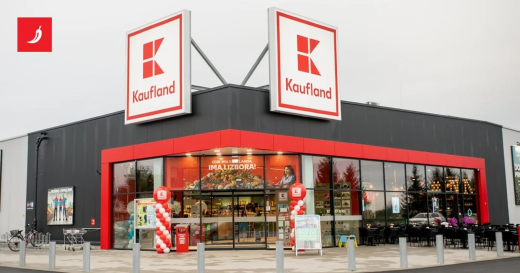Key Takeaways
- Kaufland Bulgaria opens 69th store in Sofia’s Voenna Rampa district.
- One Stop Shopping strategy expands to over 670 tenant outlets.
- Store features EDGE certification and sustainable construction.
- Dual-currency pricing prepares for Bulgaria’s eurozone entry.
- Kaufland faces competitive pressure from Lidl’s rapid growth.
Kaufland Bulgaria Expansion Hits Strategic Milestone
The Kaufland Bulgaria expansion reached a new milestone this summer with the opening of its 69th hypermarket in Sofia’s Voenna Rampa district. But this latest location is more than just a new store — it represents a redefinition of what a hypermarket can be in a rapidly evolving retail landscape.
This article explores how the Kaufland Bulgaria expansion strategy is transforming traditional grocery models into multifunctional, sustainable, and tenant-powered retail ecosystems that respond to both local demands and macroeconomic trends.
nside the Kaufland Bulgaria Expansion Strategy: One Stop Shopping in Action
At the heart of Kaufland’s expansion is its One Stop Shopping strategy—an approach that integrates essential services directly into its hypermarkets. The Voenna Rampa site, for instance, houses over 24,000 food and non-food items alongside tenants such as SOpharmacy, EasyPay, and local food vendor Gozba.
Across Bulgaria, this tenant model now supports more than 673 partner outlets, spanning nearly 200 companies from over 50 industries. This diversification is not random—each store is calibrated to its neighborhood.
“We analyze each store’s customer profile and local market gaps. The goal is synergy—offering services that complement what’s in the sales hall,” said Petar Pekaliev, Kaufland Bulgaria’s head of real estate.
This localization model enables Kaufland to support small Bulgarian businesses while extending its footprint as a one-stop hub for daily needs.
ESG in Retail: EDGE Certification and Sustainable Design
The Sofia Voenna Rampa hypermarket is a showcase of Kaufland’s ESG agenda. Developed with €18 million in capital, the store is EDGE-certified, recognizing energy efficiency, use of recycled materials, and climate-conscious design. Photovoltaic rooftop systems are also planned as part of its green blueprint.
This is Kaufland Bulgaria’s second EDGE-certified site, following its earlier Izgrev store. The company’s broader commitment mirrors parent group Schwarz’s sustainability mandates across Central and Eastern Europe.
Retail Park Integration: Blending Hypermarkets With Urban Real Estate
Beyond store interiors, Kaufland Bulgaria’s expansion now includes integration into broader real estate developments. In Sandanski and Sofia, the company has embedded its hypermarkets into or alongside retail parks, where tenants like Pepco, pharmacies, and local services co-anchor footfall-heavy environments.
With over €280 million invested in Sofia and €1 billion+ across Bulgaria, Kaufland is positioning itself as both retailer and urban infrastructure developer.
Eurozone Readiness: Dual Currency Pricing Ahead of Schedule
With Bulgaria’s euro adoption on the horizon, Kaufland has rolled out dual-currency pricing across all locations. Since June 2025, store tags and receipts show amounts in both Bulgarian lev and euro, ahead of regulatory mandates.
The move not only meets consumer expectations but reinforces Kaufland’s reputation for operational leadership in the Bulgarian retail market.
Lidl vs Kaufland Bulgaria: The Sibling Rivalry Accelerates
While Kaufland leads in store count and real estate development, rival Lidl—also part of the Schwarz Group—has taken the top revenue spot in Bulgaria. Lidl’s smaller footprint and rapid expansion pose a strategic challenge.
In response, Kaufland is doubling down on its high-footfall, tenant-integrated model—offering a broader experience than traditional discount chains can deliver.
A Forward-Looking Retail Model
The Kaufland Bulgaria expansion reflects more than just growth—it signals a pivot in how large-format retailers compete, collaborate, and build sustainability into their operations.
By embedding partner businesses, advancing ESG standards, and preparing for the eurozone, Kaufland isn’t simply opening new stores. It’s redesigning the hypermarket model to serve as a multifunctional, future-ready ecosystem.
As Bulgaria’s economy shifts and consumer expectations rise, Kaufland’s strategy offers a roadmap—not just for survival, but for leading the next phase of regional retail evolution.



